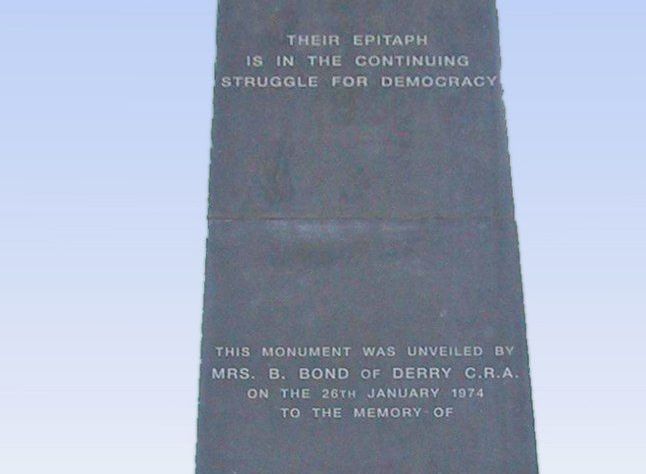Malachy McCourt.
PHOTO BY VINCENT REMINI
Page Turner / Edited by Peter McDermott
One of the most quoted couple of lines from George Bernard Shaw’s work goes: “You see things; and you say 'Why?' But I dream things that never were; and I say 'Why not?'”
Malachy McCourt is definitely in the “why not?” camp. Sometimes, he has taken on things that might seem too big of an ask even for him, such as his 2006 bid to become governor of New York on the Green Party ticket. Other times he wins, like when as an activist for the disabled he helped close down the notorious Willowbrook State Developmental Center.
But the success of his latest quest will have to be judged by the individual reader of “Death Need Not Be Fatal” – for his aim, as he told the Echo, is to “allay people’s fears of their demise.”
In the book itself, McCourt writes: “The whole business of the afterlife is of great interest to me, and this book is not my first attempt at mining this rich material. I once told an editor from a major publisher that I was looking to get an advance for a book about death I was to write after I died.
“‘But that’s never been done before,’ she replied.
“‘Exactly!’ I said.”
He adds: “From my seat here in the departure lounge, I will explore the role death has played and continues to play in my life in the world I’ve inhabited for the past 85 years. From the poverty-stricken Limerick of my childhood, to Angela’s famous ashes, to the deaths of a baby sister and all my brothers—and my own impending demise—the Grim Reaper has been a constant companion and reminder of what is important, and just as important, what’s not. I am somewhat of an elderly orphan.”
In his career the Brooklyn-born, Limerick-raised co-founder of the Irish American Writers & Artists – as well as the instigator of its regular salons – has had a variety of jobs. For example, he’s been a pub keeper (for the first singles bar in New York) and he also has played one on TV, as well as in the movies, (“The Molly Maguires” with Sean Connery and Richard Harris). He’s been a garda sergeant, too, in “The Field,” again with Harris, who features in “Death Need Not Be Fatal.” And McCourt, the man who says he’s an atheist six days a week and a pagan on Sundays, has played 12 different priest roles on the big and small screens, though he’s been a bishop only twice.
Fellow actor Liam Neeson has said: “Mr. McCourt writes with an openness and a rawness about a Dickensian childhood and a life richly lived thereafter, discovering along the way the liberation of true forgiveness and the healing quality of love.”
Meanwhile singer-songwriter Judy Collins wrote: “’Death Need Not Be Fatal’ will help you remember who you are and who you love. I loved it!”
The Washington Post’s reviewer wrote: "McCourt returns to the twin balms the Irish have relied on forever: laughter and song. A wake in book form, his new memoir, written with Brian McDonald, is chock full of lyrics and verses from McCourt's favorite songs and poems as well as tales that may or may not be true, but are quite funny even when - maybe, especially when - they deal with death."
And the New York Daily News said that the book “packs potent reflections on life.”

Malachy McCourt
Date of birth: Sept. 20, 1931
Place of birth: Greenpoint Hospital, Brooklyn
Spouse: Diana (52 years married)
Children: five, and eight grandchildren
Residence: Manhattan
Published works: “Voices of Ireland: Classic Writings of a Rich and Rare Land”; “Singing My Him Song”; “A Monk Swimming: A Memoir”; “Danny Boy: The Legend of the Beloved Irish Ballad”; “The Claddagh Ring: Ireland's Cherished Symbol Of Friendship, Loyalty And Love”; “Bush Lies in State”; “Harold Be Thy Name: Lighthearted Daily Reflections for People in Recovery”; “Through Irish Eyes: A Visual Companion to Angela McCourt's Ireland”; “History of Ireland”; An essay in “The Face in the Mirror: Writers Reflect on Their Dreams of Youth and the Reality of Age.”
What is your writing routine? Are there ideal conditions?
I find it helpful to sit down unlike Hemingway who wrote standing. My routine is sporadic, so it can be anytime that I pick up the pen and away I go. I may write a lot of drivel, but never get the writer’s block.
What advice do you have for aspiring writers?
Never call yourself an aspiring writer. Because when you write you are a writer. Don't show your work to blood relatives; they will always find something wrong. Only show the work to writers you respect and editors.
Name three books that are memorable in terms of your reading pleasure.
All of P.G. Wodehouse, the memoirs of Sean O’Casey and the poetry of Dylan Thomas. And as well as I knew him, I was dazzled by my brother Frank’s book “Angela's Ashes.”
What book are you currently reading?
Colum McCann’s advice to young writers
Is there a book you wish you had written?
I am never sure of my literary abilities and therefore it would be presumptuous to think I could do other writers’ work. Answer: No.
Name a book that you were pleasantly surprised by.
Ulick O’Connor’s bio of Brendan Behan.
If you could meet one author, living or dead, who would it be?
P.G. Wodehouse.
What book changed your life?
O’Casey’s “Knock at the Door.”
What is your favorite spot in Ireland?
The Cliffs of Moher.
You're Irish if...
You can weep as easily as you can collapse with laughter.










